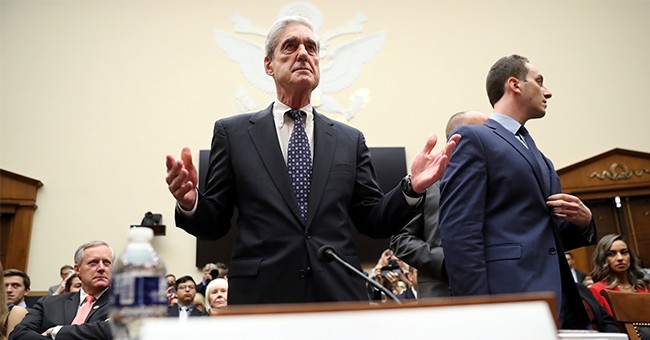
In Sunday’s Washington Post, Robert Mueller — allegedly — penned a “letter” commenting on the commutation of Roger Stone’s sentence following his conviction for obstructing Congress, witness tampering, and making false statements. The letter is behind the WaPo paywall.
I have written several pieces on the Stone prosecution and the conduct of the Special Counsel’s Office (SCO). You can find them here. One thing you won’t find in any of the stories I have written is a claim that Roger Stone is “factually innocent” of the crimes for which he was convicted, nor any support for the idea that he was entrapped or otherwise “set up” by the government. As I’ve tried to make clear on Twitter, Roger Stone found himself in the predicament he was in because of his own foolish conduct which I attribute largely to his penchant for playing “provocateur” to the left-wing zealots, and an unhealthy tendency towards self-aggrandizement by a guy who wanted to be more actively involved in the campaign during Pres. Trump’s 2016 run for the Presidency.
In my view, when Stone was falsely touting his contacts to Wikileaks to senior members of the Trump campaign — most of whom he had known for decades — he was almost certainly unaware that Wikileaks and Julian Assange were likely being employed by Russian intelligence to dump into the public domain the information they had obtained from the DNC/DCCC databases. In the arena of “political combat” Stone saw Wikileaks and Assange as nothing other than “The enemy of my enemy is my friend.”
My stories about the Stone prosecution all focus on the activities of the SCO, the violations of DOJ policy as I see them, and the farcical nature of how that case was staffed, initiated, and tried in the courtroom, viewed from my perspective of having been a DOJ prosecutor for more than 22 years.
Mueller’s letter to the WaPo seems to me to be of a kind with the Mueller letter to Attorney General Barr following the delivery of the Mueller Report to DOJ. My opinion is that Weissman drafted both, and because of their long and close relationship, Mueller was willing to put his name on the letters because Weissman’s motives would have been transparent if his signature was attached.
Both are efforts at self-justification. The real “beef” Weissman had in the letter to AG Barr was that Barr had opted to not disclose the “Executive Summaries” drafted by the SCO staff for each section of the Report, which were intended for immediate release while the text of the Report underwent review with regard to “classified information” or disclosure of grand jury materials. The refusal of DOJ to release those summaries meant the narrative which those carefully crafted summaries were meant to establish in the press, did not have take root as planned.
Similarly, Mueller’s “letter” to the WaPo is meant to rebut the written justification set forth by Pres. Trump in his announcement that he was issuing a commutation of Roger Stone’s sentence based on his view that the prosecution of Stone was unfair and politically motivated.
But, just as I did with regard to the dishonest story written by David French, and the dishonest story written by Jeffrey Toobin, I’m going to point out the duplicity and disingenuous nature of some of Mueller’s self-serving claims. He begins his letter by writing (allegedly):
The work of the special counsel’s office — its report, indictments, guilty pleas and convictions — should speak for itself. But I feel compelled to respond both to broad claims that our investigation was illegitimate and our motives were improper, and to specific claims that Roger Stone was a victim of our office. The Russia investigation was of paramount importance. Stone was prosecuted and convicted because he committed federal crimes. He remains a convicted felon, and rightly so.
Russia’s actions were a threat to America’s democracy.
This may be somewhat shocking but count me as a “dissenter” on the “paramount importance” and “threat to democracy” justifications for Crossfire Hurricane and the Special Counsel’s Office. To me these claims are gaslighting the public in order to justify the seemingly boundless inquiry and inquisition that hamstrung the Trump Administration for nearly three years. Nothing Russia did in connection with the 2016 campaign is of a difference in type with things the US has done around the world since the end of WWII.
During the Obama Administration in 2015, State Department grant funds were used by a recipient — with State Department knowledge and acquiescence — in social media and “get out the vote” efforts by the opposition party in Israel to defeat Prime Minister Netanyahu.
In late 2011, while she was Secretary of State, Hillary Clinton publicly called into question the legitimacy of the outcome of Russian parliamentary elections by claiming that not all votes of the opposition against Putin were counted.
Right or wrong is not the issue – the issue is that when the US government “plays” in the election process of foreign countries, it opens itself up to reciprocal shenanigans. It has been widely speculated that if Putin favored Trump over Clinton, the roots of that fact can likely be traced back to her calling into question the outcome of the Russian elections in December 2011.
But the idea that we should all believe democracy is put in peril because the Russians spend some number of millions on internet misinformation, when US Presidential campaign spending by the candidates, parties, and allied groups exceeds $3 billion by most estimates, is simply laughable. If this is a serious claim, then prepare yourself for an investigation every four years to save democracy from “peril” because our adversaries in the world are not going to stop their efforts to promote their own self-interests if they feel those self-interests are advanced by trying to influence our elections. They will simply take steps to better hide their efforts and cover their tracks.
Mueller’s letter (allegedly) goes continues:
By late 2016, the FBI had evidence that the Russians had signaled to a Trump campaign adviser that they could assist the campaign…
The phrasing here in the context of a story about Roger Stone seems intended to suggest a falsehood as being true – that Roger Stone was the Trump campaign adviser who was “signaled to” by the “Russians.” But that’s not true. If it was Stone, Mueller would have said it was Stone – but he does not. Nowhere in the Mueller Report is it stated that the “Russians” – note that he does not claim the “Russian Government” — “signaled” anything to Roger Stone. The Special Counsel Office’s (SCO) determined that Roger Stone had almost no contact with actual Russians at any point in time. They found three Twitter exchanges between Stone and “Guccifer 2.0” who the SCO determined to be an online persona of Russian GRU officers who had accessed the DNC and DCCC databases.
The Report states that Guccifer 2.0 first appeared on June 15, 2016. But the first contact between Stone and Guccifer 2.0 doesn’t take place until 60 days later – August 16, 2016. That is weeks after “Guccifer 2.0”, “DCLeaks”, and Wikileaks had begun to publish documents taken from the DNC and DCCC.
Mueller (allegedly) goes on:
Following FBI Director James B. Comey’s termination in May 2017, the acting attorney general named me as special counsel and directed the special counsel’s office to investigate Russian interference in the 2016 presidential election. The order specified lines of investigation for us to pursue…. One of our cases involved Stone… Stone became a central figure in our investigation for two key reasons: He communicated in 2016 with individuals known to us to be Russian intelligence officers, and he claimed advance knowledge of WikiLeaks’ release of emails….
All well and good. But there are a couple of problems here nonetheless.
First, the FBI had been investigating Russian interference in the 2016 election, and whether there were connections between Russian actors and Trump Campaign operatives, for 10 months at the time of Mueller’s appointment – including having gained access to Trump campaign communications through the FISA warrant obtained on former campaign aide Carter Page. This period of FBI and DOJ activity is covered extensively in the Horowitz IG Report on “Four FISAs”. I haven’t attempted to re-read the entire Report, but I have no recollection of Roger Stone’s name ever appearing in that Report, nor do I find his name anywhere in the Table of Contents of the Report.
The Report does say that the FBI’s “Crossfire Hurricane” investigation targeted Trump campaign officials Paul Manafort, Carter Page, Gen. Michael Flynn, and George Papadopolous. Roger Stone must have been overlooked – he keeps such a low profile.
And, as a matter of fact, the first “Scope Memo” from the Acting Attorney General to the Special Counsel which specifically referenced individuals to be subject of the Special Counsel’s Office investigation named the same four individuals.
Not referenced in the Scope Memo — Roger Stone. Again, likely because he was “flying below the radar”.
So, WHEN did Roger Stone become a “central figure” in the investigation? Mueller’s letter (allegedly) doesn’t say. But known FACTS seem to suggest that he only became a “central figure” AFTER the SCO took over the matter – with the FBI never having focused on him in the ten months the investigation was underway, involving hundreds of agents operating out of at least 3 different Field Offices and FBI Headquarters. Stone’s “deep cover” efforts slipped completely past that nearly year-long law enforcement effort.
As for Stone having “communicated” with Russian intelligence officers, that can only be a reference to Stone’s three Twitter exchanges with “Guccifer 2.0” who the SCO determined to be an online persona of the Russian GRU officers who accessed the DNC/DCCC. Here is the TOTALITY of what the Mueller Investigation reported it found in terms of Stone’s “communications” with Russian intelligence — from P. 44 of the unredacted version of the Report:
In early August 2016, Stone publicly protested Twitter’s suspension of the Guccifer 2.0 Twitter account. After it was reinstated, GRU officers posing as Guccifer 2.0 wrote to Stone via private message “thank u for writing back… do u find anyt[h]ing interesting in the docs I posted?”
On August 17, 2016, GRU added “please tell me if I can help u anyhow … it would be a great pleasure to me.”
On September 9, 2016, the GRU – again posing as Guccifer 2.0 – referring to the stolen DCCC documents posted online and asked Stone “what do u think of the info on the turnout model for democrats entire presidential campaign.” Stone responded “pretty standard.”
As I noted previously, the next sentence in the Mueller Report states:
“The investigation did not identify evidence of other communications between Stone and Guccifer 2.0.”
It must be noted here that there was no basis for Stone to know in the summer of 2016 that he might be communicating with Russian intelligence officers in his exchanges with Guccifer 2.0, so any suggestion to that effect is duplicitous and meant only to defame Stone. “Guccifer 2.0” had portrayed himself, and the media described him, as a Romanian based “hacktivist.” It took the “cyber warrior” capabilities of the US intelligence and law enforcement communities to trace the internet steps of “Guccifer 2.0” and the Russian GRU officers in order to identify them as one-in-the-same – a conclusion that many still dispute to this day.
More from Mueller (allegedly):
We also identified numerous links between the Russian government and Trump campaign personnel — Stone among them. We did not establish that members of the Trump campaign conspired with the Russian government in its activities. The investigation did, however, establish that the Russian government perceived it would benefit from a Trump presidency and worked to secure that outcome. It also established that the campaign expected it would benefit electorally from information stolen and released through Russian efforts.
What links were there between Stone and the “Russian government” – other than the fact that he might have unwittingly been in communication with Russian GRU officers posing as “Guccifer 2.0”?
The Russian’s thought a Trump Presidency — rather than a Hillary Clinton Presidency – would benefit Russian national interests and took steps to further those national interests?? Shocking.
Netanyahu: President Obama, why are you working with my opposition to defeat my efforts to gain re-election?
Obama: Because I believe it to be in the United States’ national interest for you to lose and your opponent to win.
Netanyahu: Go F**** yourself.
Obama: You have a nice day too.
See how that works?
Mueller again (allegedly):
More than two dozen Russian individuals and entities, including senior Russian intelligence officers, were charged with federal crimes.
If it was so critically important that these malefactors be brought to justice, why did the SCO abandon the prosecution of Concord Management and Consulting? Could it have been because when those indictments were drafted the SCO’s office never imagined that prosecutors would be required to 1) produce discovery of the evidence that supported the allegations, and/or 2) have that evidence subjected to confrontation and cross-examination?
Were you and your staff satisfied by simply being able to have a press conference and talk about all the allegations in the indictments as if they were established facts about pernicious Russian activity, comfortable in the assumption you’d never be called upon to — you know — “prove it”?
DOJ Policy on bringing indictments states, U.S. Justice Manuel § 9-27.200 states:
The attorney for the government should commence or recommend federal prosecution if he/she believes that the person’s conduct constitutes a federal offense, and that the admissible evidence will probably be sufficient to obtain and sustain a conviction….
If the convictions could not be obtained with the available admissible evidence, then the cases should not have been brought — Russian malfeasance or otherwise. Unless the purpose in bringing the cases was to further the narrative in the press and public sought by the Mueller SCO’s partisans — that the Russians influenced the outcome of the election for the benefit of Donald Trump and “We can prove it”. But the Mueller SCO punted when they were asked to prove it. Hardly a basis upon which to wrap yourself in the flag for having defended democracy.
[I]t was critical for us (and, before us, the FBI) to obtain full and accurate information. Likewise, it was critical for Congress to obtain accurate information from its witnesses. When a subject lies to investigators, it strikes at the core of the government’s efforts to find the truth and hold wrongdoers accountable….
We made every decision in Stone’s case, as in all our cases, based solely on the facts and the law…
Why was Roger Stone indicted but not Jerome Corsi?
Why was Gen. Flynn coerced into a plea but not Jerome Corsi?
Why was George Papadopolos coerced into a plea but not Jerome Corsi?
The unredacted Mueller Report says at P. 58-59:
Corsi gave conflicting accounts of what happened after Stone purportedly informed him about the video. Initially, Corsi told investigators that he had instructed Stone to have WikiLeaks release information to counteract the expected reaction to the video’s release, and that Stone said that was a good idea and would get it done. Later during the same interview, Corsi stated that Stone had told Corsi to have WikiLeaks drop the Podesta emails immediately, and Corsi told Stone he would do it. Corsi said that, because he had no direct means of communicating with WikiLeaks, he told members of the news site WND—who were participating on a conference call with him that day—to reach Assange immediately…. In a later November 2018 interview, Corsi stated that he thought that he had told people on a WND conference call about the forthcoming tape and had sent out a tweet asking whether anyone could contact Assange, but then said that maybe he had done nothing.
Let’s track that a bit to make the events clear:
- Corsi says he instructed Stone to have Wilileaks release documents.
- Later in the same interview, Corsi says Stone told Corsi to have Wikileaks release documents.
- Corsi next says he told members of World News Daily on a conference call to get in contact with Assange – since he had no way to do so.
- In a later interview, Corsi said he told people at WND about the forthcoming Access Hollywood tape and sent out a tweet asking whether anyone could contact Assange.
- But later said maybe he didn’t do anything.
The SCO sent Corsi a draft plea agreement for him to sign, admitting that he made “false statements” to the SCO. When Corsi refused, the SCO dropped the threat to indict him.
I’m not advocating for the prosecution of Jerome Corsi, or that the statements set forth in 1-5 above reflect prosecutable crimes. I’m simply pointing out the inaccuracy of Mueller’s claim that the prosecution of Roger Stone was to vindicate the need for Congress and criminal investigators to get the truthful cooperation from people with information that might assist them.
I want to hear Robert Mueller — or Andrew Weissman more likely — defend Aaron Zelinsky’s recommendation that Roger Stone be sentenced to 87 months but Jerome Corsi not be charged at all. I suspect that attempt would tell us all we need to know about the “facts and law” in Robert Mueller’s world.
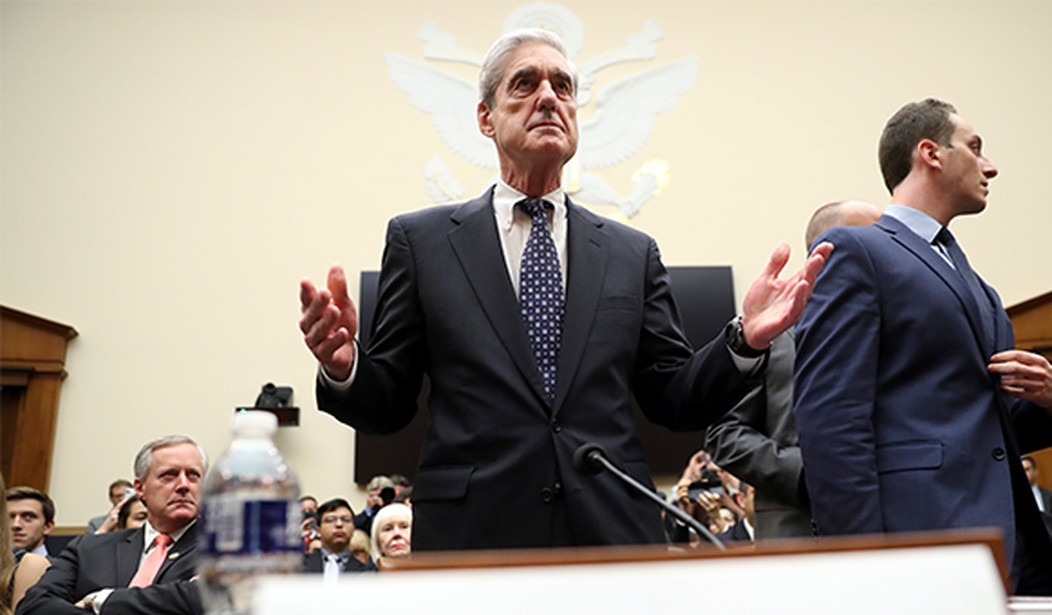

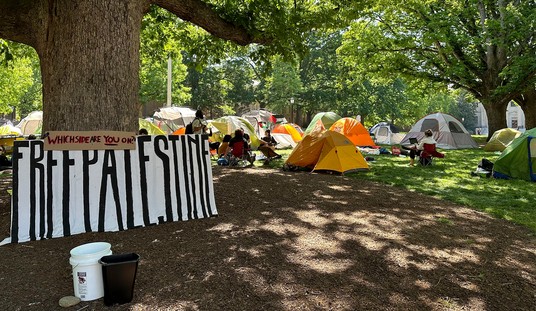
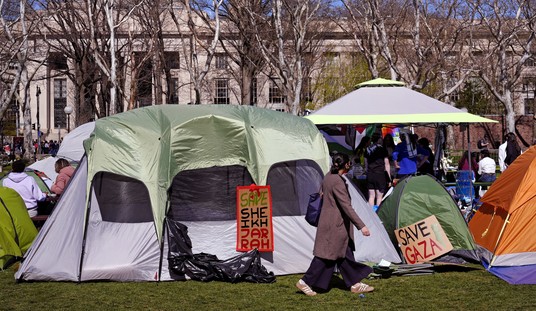

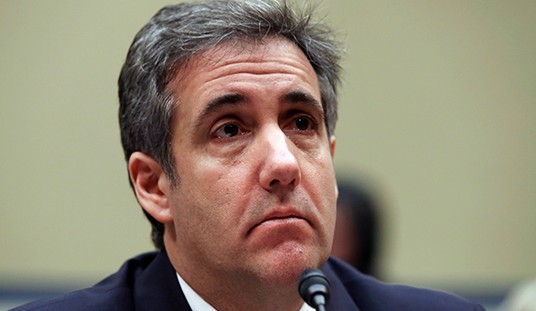


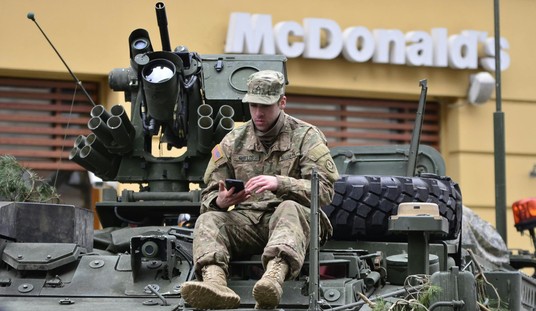


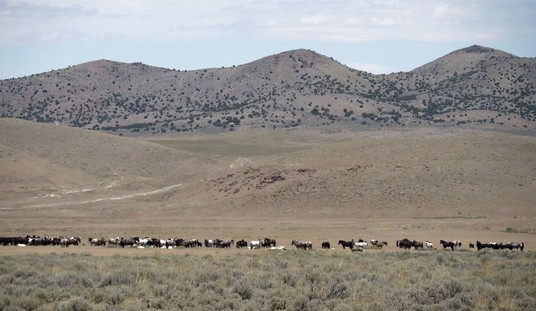
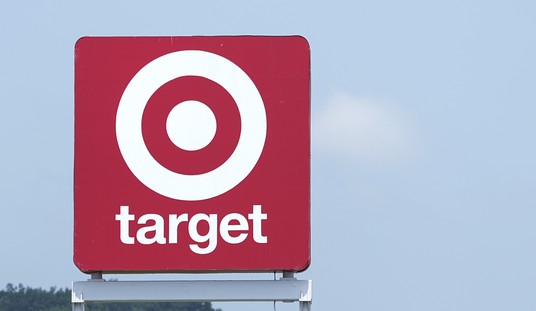
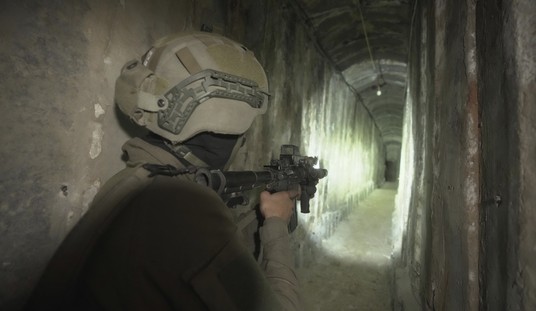
Join the conversation as a VIP Member